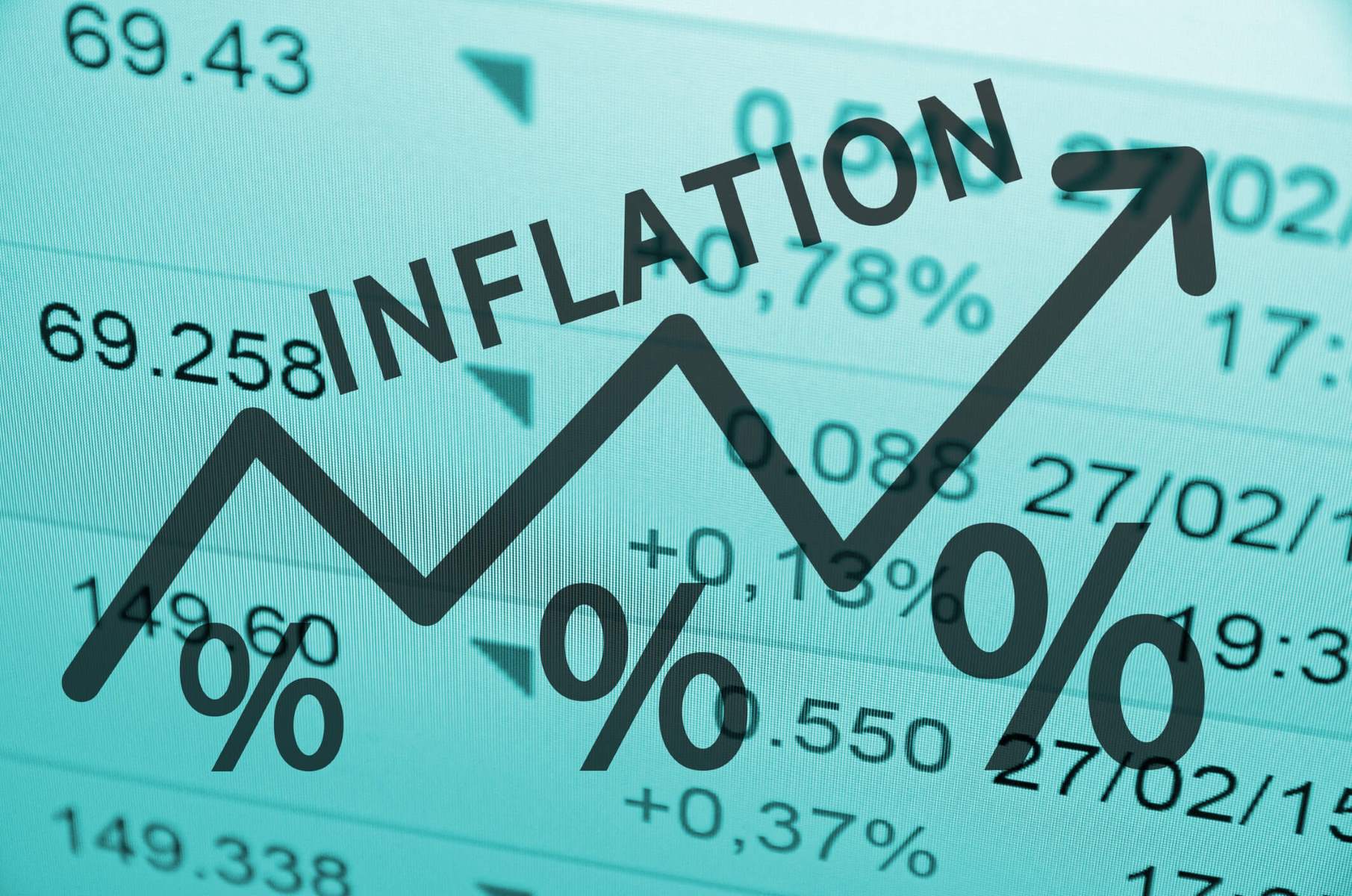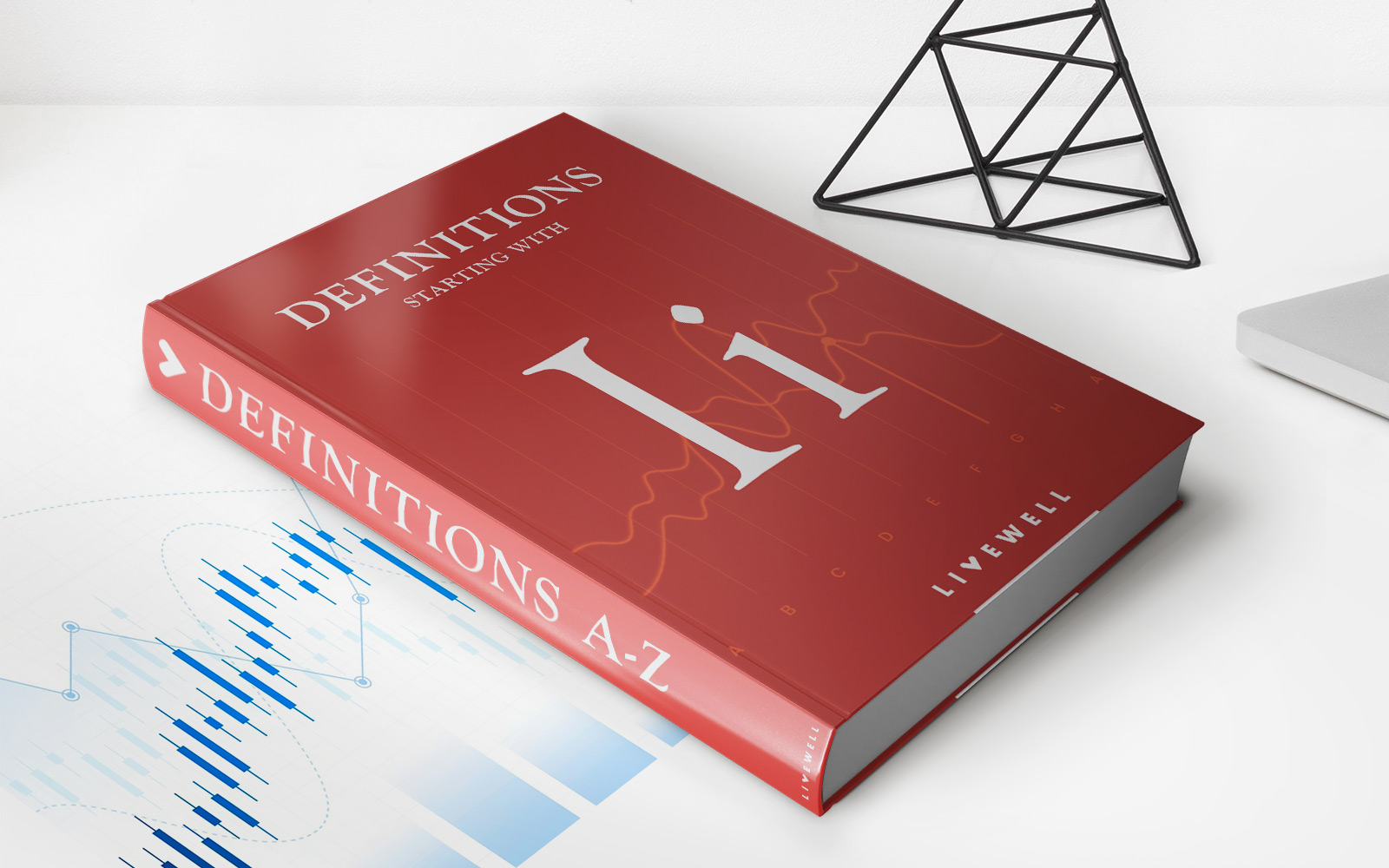Home>Finance>How Does Inflation Affect Fixed-Rate Mortgages?


Finance
How Does Inflation Affect Fixed-Rate Mortgages?
Published: October 19, 2023
Learn how inflation impacts fixed-rate mortgages and discover the financial implications for borrowers. Stay informed about the connection between finance and inflation.
(Many of the links in this article redirect to a specific reviewed product. Your purchase of these products through affiliate links helps to generate commission for LiveWell, at no extra cost. Learn more)
Table of Contents
Introduction
Fixed-rate mortgages are a popular choice for many homebuyers. They provide stability and predictability, with a fixed interest rate over the life of the loan. However, like any financial product, they are not immune to the effects of inflation.
Inflation is the gradual increase in prices over time. It erodes the purchasing power of money and affects the overall economy. Understanding how inflation impacts fixed-rate mortgages is essential for both homeowners and prospective buyers.
This article will explore the relationship between inflation and fixed-rate mortgages, examining the factors that contribute to inflation, the specific impact inflation has on mortgage payments, loan-to-value ratios, and housing affordability. Additionally, we will discuss strategies that can help homeowners and borrowers manage inflationary risks.
By the end of this article, readers will have a comprehensive understanding of how inflation can influence the financial aspects of owning or acquiring a fixed-rate mortgage. This knowledge will empower individuals to make informed decisions regarding their mortgage loans in the face of inflationary pressures.
Understanding Fixed-Rate Mortgages
A fixed-rate mortgage is a type of home loan where the interest rate remains constant throughout the entire term of the loan. This means that the monthly mortgage payment remains the same over the life of the loan, providing borrowers with stability and consistency in their financial planning.
Unlike adjustable-rate mortgages, where the interest rate can fluctuate over time, fixed-rate mortgages offer peace of mind for homeowners. They allow individuals to budget their monthly expenses more accurately, knowing that their mortgage payment will not change due to interest rate fluctuations.
When applying for a fixed-rate mortgage, borrowers choose the term of the loan, typically ranging from 15 to 30 years. The interest rate is determined based on market conditions, the borrower’s credit history, and other factors. Once the loan is established, the interest rate remains the same, regardless of any subsequent changes in the economy or interest rates.
Fixed-rate mortgages are especially popular in times of economic uncertainty, as they provide stability in the face of volatile interest rate movements. They are a common choice for long-term homeowners who plan to stay in their properties for several years.
It is important to note that while the interest rate remains fixed, the monthly mortgage payment may change slightly over time due to other factors such as property taxes or homeowners insurance.
Now that we have a clear understanding of what a fixed-rate mortgage is, let’s delve into the concept of inflation and how it can impact these types of loans.
Definition and Causes of Inflation
Inflation refers to the sustained increase in the general level of prices for goods and services in an economy over a period of time. This means that the purchasing power of money decreases as prices rise, reducing the value of each dollar earned or saved.
There are several key factors that contribute to inflation:
- Increase in Money Supply: When there is an excessive increase in the money supply, more money chases the same amount of goods and services, leading to rising prices.
- Demand-Pull Inflation: This occurs when there is more demand for goods and services than there is supply, causing prices to rise.
- Cost-Push Inflation: In this scenario, the cost of production, such as wages or raw materials, increases, leading to higher prices for finished goods and services.
- Inflationary Expectations: If consumers and businesses expect prices to rise, they may adjust their behavior by demanding higher wages or increasing prices, thus fueling inflation.
- Government Policies: Government actions, such as printing more money, increasing government spending, or implementing ineffective monetary policies, can contribute to inflation.
Inflation is typically measured using various economic indicators, such as the Consumer Price Index (CPI) or the Producer Price Index (PPI). These indices track the average change in prices for a basket of goods and services, providing insights into the overall inflationary trends in an economy.
Now that we understand the definition and causes of inflation, let’s explore how inflation can impact fixed-rate mortgages.
Impact of Inflation on Fixed-Rate Mortgages
Inflation can have several effects on fixed-rate mortgages, affecting both the monthly mortgage payments and the overall affordability of owning a home. Let’s explore these impacts in greater detail:
- Increase in Monthly Mortgage Payments: One of the most significant impacts of inflation on fixed-rate mortgages is the potential increase in monthly mortgage payments. While the interest rate remains fixed, inflation erodes the purchasing power of money. As prices rise, the value of each dollar decreases, effectively diminishing the real cost of the mortgage payment. Therefore, homeowners may experience a decline in their purchasing power as their mortgage payment represents a smaller portion of their overall expenses.
- Effect on Loan-to-Value Ratio: Inflation can also impact the loan-to-value ratio (LTV) of a mortgage. LTV is the ratio of the loan amount to the appraised value of the property. As inflation occurs, property values tend to rise, resulting in an increase in the appraised value of homes. This can lead to a decrease in the LTV ratio over time. A lower LTV ratio may benefit homeowners who are looking to refinance or access equity in their homes.
- Impact on Housing Affordability: Rising inflation can affect housing affordability, making it more challenging for individuals to enter the housing market. As prices rise, the cost of housing increases, potentially pricing out prospective homebuyers. This can lead to a decrease in demand for homes, impacting the overall housing market. Additionally, inflation can affect the availability and cost of mortgage financing, making it more difficult for borrowers to secure favorable loan terms.
It is important to note that the impact of inflation on fixed-rate mortgages is relatively moderate compared to adjustable-rate mortgages, where changes in interest rates have a direct and immediate impact on monthly payments. However, the erosion of purchasing power and potential changes in the loan-to-value ratio can still influence the overall financial dynamics of owning a fixed-rate mortgage.
Next, let’s discuss strategies that homeowners and borrowers can employ to manage inflationary risks associated with fixed-rate mortgages.
Increase in Monthly Mortgage Payments
One of the significant impacts of inflation on fixed-rate mortgages is the potential increase in monthly mortgage payments. Although the interest rate remains fixed over the loan term, inflation erodes the purchasing power of money. As prices rise, the value of each dollar decreases, resulting in a decrease in the real cost of the mortgage payment.
For example, let’s consider a homeowner who has a fixed-rate mortgage with a monthly payment of $1,000. If inflation occurs at a rate of 2% per year, the purchasing power of that $1,000 payment decreases over time. Inflation effectively reduces the burden of the mortgage payment relative to other expenses. It is important to note that although the real value of the mortgage payment decreases, the nominal payment amount remains the same throughout the loan term.
On the flip side, inflation can impact other aspects of homeownership, such as property taxes and homeowners insurance. These expenses are often tied to the value of the property, which can increase with inflation. As a result, even if the mortgage payment itself remains the same, the overall cost of homeownership may still rise.
It is worth mentioning that the impact of inflation on monthly mortgage payments is relatively modest compared to adjustable-rate mortgages. While fixed-rate mortgages provide stability by keeping the interest rate fixed, adjustable-rate mortgages are more sensitive to changes in inflation and interest rates. Adjustable-rate mortgages typically have fixed initial rates, which adjust periodically based on market conditions. Therefore, borrowers with adjustable-rate mortgages may experience more substantial changes in their monthly payments due to inflation.
To mitigate the potential impact of inflation on monthly mortgage payments, homeowners can consider taking the following steps:
- Create a Budget: By creating a comprehensive budget, homeowners can gain a better understanding of their overall expenses and allocate their income effectively. This allows them to manage fluctuations in the cost of living, including potential increases in mortgage payments due to inflation.
- Build an Emergency Fund: Having an emergency fund provides a financial cushion in case of unexpected expenses or changes in the cost of living. It can help homeowners navigate higher mortgage payments caused by inflation without experiencing financial strain.
- Consider Refinancing: In some cases, homeowners may choose to refinance their fixed-rate mortgage to take advantage of lower interest rates. Refinancing can potentially reduce the monthly mortgage payment, offsetting the impact of inflation. However, it is essential to carefully evaluate the costs and benefits of refinancing before making a decision.
- Accelerate Loan Payments: Some homeowners may opt to make extra principal payments towards their mortgage to pay it off sooner. By reducing the loan balance, homeowners can decrease the overall interest paid over the loan term, potentially reducing the impact of inflation on their mortgage payments.
By implementing these strategies, homeowners can better prepare for potential increases in monthly mortgage payments due to inflation, allowing them to navigate changes in their financial obligations more effectively.
Effect on Loan-to-Value Ratio
Inflation can also impact the loan-to-value ratio (LTV) of a mortgage. The LTV ratio is the ratio of the loan amount to the appraised value of the property. As inflation occurs, property values tend to rise, leading to an increase in the appraised value of homes. This increase can have a positive impact on the LTV ratio.
Let’s consider an example to understand this impact. Suppose a homeowner purchased a property for $200,000, and they took out a mortgage of $160,000 at the time of purchase, resulting in an LTV ratio of 80%. Over time, due to inflation and rising property values, the appraised value of the home increases to $250,000. As a result, the LTV ratio decreases to 64% ($160,000 loan amount divided by $250,000 appraised value).
A lower LTV ratio can benefit homeowners in several ways:
- Potential Refinancing Opportunities: A lower LTV ratio may make homeowners eligible for better refinancing options. With a reduced loan-to-value ratio, borrowers may qualify for lower interest rates or additional cash-out refinancing options to access equity in their homes.
- Lower Mortgage Insurance Premiums: If the initial mortgage loan required private mortgage insurance (PMI) due to a high LTV ratio, a decrease in the LTV ratio can make homeowners eligible for PMI cancellation. This can lead to savings in monthly mortgage payments.
- Access to Home Equity: A lower LTV ratio enables homeowners to tap into their home equity through home equity loans or lines of credit. This can provide additional funds for purposes such as home improvements, debt consolidation, or other financial needs.
It’s crucial to note that the impact of inflation on the LTV ratio is indirect. Inflation itself does not directly affect the loan balance; rather, it influences property values. The rise in property values, driven by inflation, contributes to the decrease in the LTV ratio over time.
It’s important for homeowners to regularly monitor the value of their property, particularly during periods of inflation. Keeping track of the property’s value can help homeowners take advantage of favorable loan-to-value ratios and explore opportunities to leverage their home equity.
Next, we will discuss the impact of inflation on housing affordability and explore strategies to manage inflationary risks.
Impact on Housing Affordability
Inflation can have a significant impact on housing affordability, making it more challenging for individuals to enter the housing market or manage the costs of homeownership. As prices rise due to inflation, the cost of housing increases, potentially pricing out prospective homebuyers.
Here are a few ways in which inflation can affect housing affordability:
- Rise in Home Prices: Inflation contributes to an increase in home prices over time. This means that prospective homebuyers may need to spend more money to purchase a property, making it more difficult to afford a home, especially for first-time buyers or those with limited financial resources.
- Higher Down Payments: Inflation can also impact the down payment requirement for purchasing a home. Lenders often require a certain percentage of the home’s purchase price as a down payment. As home prices increase, the down payment amount also rises, potentially creating a barrier to homeownership for many individuals.
- Increased Mortgage Rates: Inflation can influence mortgage interest rates, although fixed-rate mortgages tend to provide more stability in this regard. However, if inflation leads to an overall increase in interest rates, adjustable-rate mortgages may become more expensive over time, affecting the affordability of homeownership.
- Availability of Mortgage Financing: Inflationary pressures can impact the availability and cost of mortgage financing. Lenders may become more cautious in lending, tightening their lending criteria and making it more difficult for borrowers to qualify for mortgage loans. This can further limit housing affordability for potential homebuyers.
The impact of inflation on housing affordability is not uniform across regions or property markets. High-demand areas or markets with limited housing supply may experience more significant increases in home prices, exacerbating affordability challenges.
To manage the impact of inflation on housing affordability, individuals can consider the following strategies:
- Save for a Higher Down Payment: Increasing savings to afford a higher down payment can help reduce the loan amount and monthly mortgage payment. By saving more, potential homebuyers can offset some of the affordability challenges presented by rising home prices.
- Explore Government Programs: Government programs, such as first-time homebuyer assistance programs or low down payment options, can help individuals overcome the barriers of high home prices and down payment requirements. Researching and utilizing these programs can make homeownership more attainable.
- Consider Alternative Housing Options: Exploring alternative housing options, such as condominiums, townhouses, or shared living arrangements, can provide more affordable alternatives to traditional single-family homes. These options may offer lower purchase prices and ongoing expenses, making them more accessible in the face of rising prices.
- Seek Professional Advice: Consulting with a financial advisor or housing counselor can provide valuable insights and guidance on navigating housing affordability challenges amidst inflationary pressures. These professionals can help individuals assess their financial situation, explore available resources, and make informed decisions.
By implementing these strategies and staying informed about housing market trends, individuals can better manage the impact of inflation on housing affordability and make responsible decisions regarding their homeownership goals.
Strategies to Manage Inflationary Risks
Managing inflationary risks is crucial for homeowners and borrowers who want to ensure the long-term financial stability of their fixed-rate mortgages. While inflation is a natural part of the economy, there are strategies individuals can employ to mitigate its impact. Here are some strategies to consider:
- Monitor Interest Rates: Keep a close eye on interest rate trends and market conditions. If inflation is expected to rise significantly, consider refinancing your mortgage to a lower interest rate. Refinancing can help lower your monthly mortgage payment, offsetting the impact of inflation.
- Make Extra Principal Payments: Whenever possible, make extra payments towards the principal of your mortgage. By reducing the loan balance, you can potentially shorten the loan term and reduce the overall interest paid over time. This strategy helps build home equity and protects against the erosion of the value of your mortgage payment due to inflation.
- Invest in Real Assets: Consider diversifying your investment portfolio with real assets that typically perform well during inflationary periods. Real estate and commodities like gold and real estate investment trusts (REITs) can act as a hedge against inflation. These assets have historically shown the ability to retain or increase in value during inflationary environments.
- Keep an Emergency Fund: Build a sufficient emergency fund to cover unexpected expenses or financial challenges that may arise due to inflation. Having a safety net can provide peace of mind and help withstand potential reductions in purchasing power.
- Adjust Your Budget: Regularly review and adjust your budget to account for potential increases in the cost of living due to inflation. Allocate your income wisely, prioritize essential expenses, and identify areas where you can cut back if necessary.
- Consider Locking in Long-Term Fixed Rates: If you have the opportunity, consider locking in a long-term fixed rate for your mortgage. This provides stability and protects you from potential interest rate increases that may occur during times of high inflation.
- Stay Informed: Stay up-to-date with economic news, inflation reports, and market trends. Understanding the current economic climate and inflationary pressures can help you make informed decisions regarding your mortgage and overall financial strategy.
Remember, it’s essential to consider your unique financial situation and consult with professionals, such as financial advisors or mortgage brokers, before implementing any specific strategy.
By employing these strategies, homeowners and borrowers can proactively manage inflationary risks and position themselves for long-term financial success with their fixed-rate mortgages.
Conclusion
Inflation can have a significant impact on fixed-rate mortgages, affecting the monthly mortgage payments, loan-to-value ratios, and overall housing affordability. While the interest rate remains fixed, inflation erodes the purchasing power of money over time, potentially diminishing the real cost of mortgage payments. However, the impact on fixed-rate mortgages is relatively moderate compared to adjustable-rate mortgages, which are more directly influenced by changes in interest rates.
Managing inflationary risks is crucial for homeowners and borrowers. By implementing strategies such as monitoring interest rates, making extra principal payments, diversifying investments, maintaining an emergency fund, adjusting budgets, considering long-term fixed rates, and staying informed, individuals can mitigate the impact of inflation on their mortgages and overall financial well-being.
It is crucial to stay proactive and adaptable in the ever-changing economic landscape. By understanding the relationship between inflation and fixed-rate mortgages, individuals can make informed decisions regarding their mortgage loans and navigate potential inflationary pressures effectively.
Ultimately, it’s recommended that individuals consult with financial advisors, mortgage professionals, and other experts to tailor strategies to their specific financial goals and circumstances. By doing so, homeowners can confidently manage inflationary risks and ensure the long-term stability of their fixed-rate mortgages.














